New Year, New Faces at Tandon's Finance and Risk Engineering Department
Once again this semester the Department of Finance and Risk Engineering (FRE) welcomes a group of new instructors who collectively bring with them decades of industry experience, real-world insights, and technological savvy.
New FRE Faculty:
- James Adams
- Samim Ghamami
- Dan Gode
- Conall O'Sullivan
- Ken Perry
- Michael Sotiropoulos
- George Varughese
- Jeff (Jifei) Wang
- Jane Zhao
James Adams

Dr. James Adams brings more than 25 years of industry experience to his new post at Tandon, where he’ll be teaching Financial Risk Management & Asset Pricing. “Combining theory and practice has been a hallmark of my own career, and that will be a focus in my course as well,” he says. “Students should develop an understanding of the financial ecosystem, learning from history while anticipating what will come next. Risk management is like driving – while you need to look through the windshield to see what is immediately ahead of you, at the same time you must scan the horizon, watch the rear view mirror and keep an eye on the periphery.”
While Dr. Adams agrees that gaining a holistic risk perspective can be difficult, he believes Tandon’s Department of Finance and Risk Engineering students are up to the challenge. “The fact that they’ve been admitted to this rigorous program indicates that they are part of a strong, select group,” he explains. “If they are engaged, participate in class and are willing to question their own formalized assumptions from time to time, they’ll be very successful both in my class and throughout their careers.”
As Dr. Adams helps prepare Tandon students engineer the future of finance, he brings a unique perspective on managing risk and investments in an evolving market and regulatory environment from his tenure at J.P. Morgan. Throughout his career, he has been dedicated to recruiting, training and mentoring talent, training junior and senior professionals at J.P. Morgan and pursuing academic research from a practitioner’s perspective. As a CFA (Chartered Financial Analyst) charter holder, he drew upon his years of experience structuring and executing derivative strategies to co-author several CFA Institute Fixed Income curriculum readings used by candidates worldwide in pursuit of this prestigious designation.
Dr. Adams has not only led sales teams in Derivatives, Rates, Foreign Exchange and Investor Services at J.P. Morgan covering major institutions across sectors and regions, his passion for education is evident from his frequent teaching engagements beyond his day-to-day responsibilities, including teaching MBA students at City University during his time in Europe, and he’s excited to continue this work at Tandon. He also just joined the Board of Directors of Sokoman Iron Corporation, a discovery-oriented Canadian company which recently listed its shares in the U.S.
Teaching – specifically teaching at NYU – also happens to be something of a family affair in the Adams household: his wife Dr. Sylvia Adams is Associate Professor of Medicine and Director of Clinical Breast Cancer Research at NYU Langone’s Perlmutter Cancer Center, and recently made news with a groundbreaking study on the promising use of immunotherapy in treating aggressive “triple-negative” breast cancer.
Samim Ghamami
Samim Ghamami, a new member of FRE, is also currently a Senior Financial Economist at Goldman Sachs, an Adjunct Professor at New York University, an Adjunct Associate Professor of Economics at Columbia University, and a Senior Researcher at UC Berkeley Center for Risk Management Research. He received his Ph.D. in Mathematical Finance and Operations Research from the University of Southern California in 2009, where his principal advisor was Sheldon Ross.
Ghamami has been an Associate Director (Acting) and a Senior Research Economist at the U.S. Department of the Treasury, Office of Financial Research, an Economist at the Board of Governors of the Federal Reserve System and an Advisor to the Basel Committee on Banking Supervision. His work on banking and central clearing has been presented and discussed at central banks and supervisory agencies. He has worked as an expert with the Financial Stability Board on the review of OTC derivatives market reforms in 2016 and 2017. Ghamami has also served on the National Science Foundation panel on Financial Mathematics in 2017 and 2018.
Ghamami has been a Visiting Scholar at the Department of Economics at UC Berkeley, a Senior Quantitative Researcher at MSCI, a Quantitative Researcher at Barclays Capital in New York, an Adjunct Professor at USC, and a Post-Doctoral Researcher at CREATE Homeland Security Center. His publications have appeared in different journals including Management Science, Journal of Applied Probability, Mathematics of Operations Research, Journal of Financial Intermediation, Journal of Credit Risk, Journal of Derivatives, Probability in the Engineering and Informational Sciences, Quantitative Finance, Journal of Risk, and International Journal of Financial Engineering.
Dan Gode
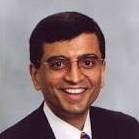
Looking at Dan Gode’s résumé, it’s immediately apparent that his accounting knowledge and skills are outstanding. In addition to his consulting work, he has run numerous training programs at corporations, investment banks, hedge funds, and private equity shops on such topics as financial reporting, modeling, valuation, credit risk analysis, and forensic financial statement analysis, with a client list that includes such iconic organizations as Boeing, the NFL Players Association, PepsiCo, and Citigroup. Additionally, he has been a professor of accounting at NYU Stern for more than two decades. If you assume, however, that his own education includes multiple graduate degrees in accounting, you would be wrong. “I have taken only one financial accounting course my whole life,” he says. “Other than that I’m totally self-taught. I had to pass the M.S./Ph.D. in accounting qualifying exams though, and I have been teaching professional accountants ever since.”
Gode, who joins Tandon’s Department of Finance and Risk Engineering this spring, thinks his background may serve as an inspiration to students. “There is no one set path you must follow,” he asserts, “and no need to know immediately where life will take you.”
Gode earned his graduate degrees from Carnegie Mellon after coming to the U.S. from his native India, and he spent much of his time studying topics like Electronics and Communication Engineering and Information Systems. Tandon thus seems a natural fit for him, especially since he can proudly list software development among his talents: While at Carnegie Mellon, he wrote trading software, and he is the creator of Financial Accounting Tutor, an interactive software package that helps students learn basic accounting concepts on their own, thereby freeing up class time for more comprehensive discussions.
His teaching philosophy revolves around a firm belief that people don’t learn by listening but by actually doing, so students in his class should expect to be assigned regular – and plentiful – homework. And if you assume that makes him unpopular in the classroom, you’d again be completely wrong: Gode has garnered a long string of teaching laurels, including a Superior Teaching Award from the University of Rochester, where he began his career in academia, and multiple Professor of the Year Awards from Stern.
Conall O'Sullivan
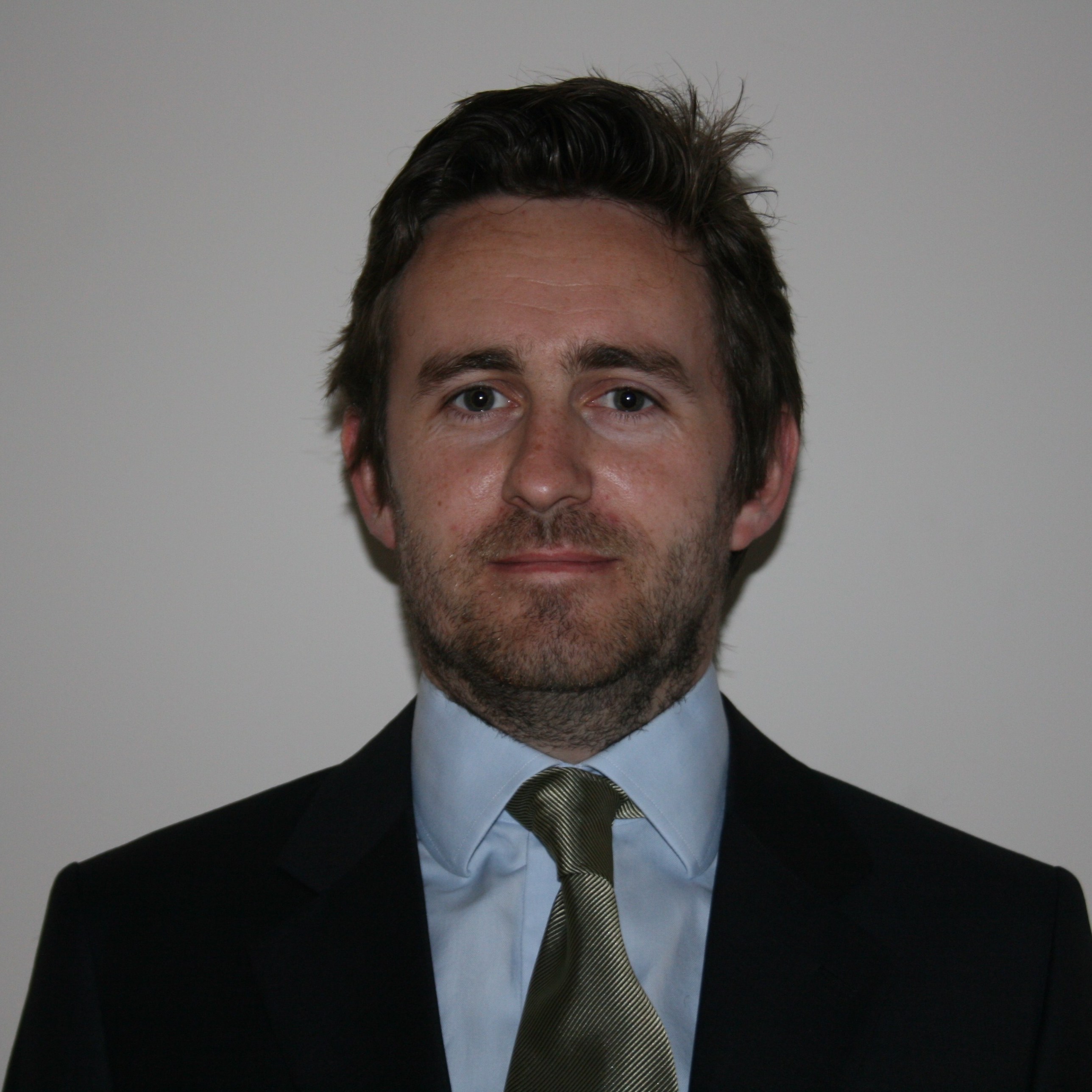
This August, when the Department of Finance and Risk Engineering launched its first-ever in-person pre-program boot camp for newly admitted students, Conall O’Sullivan, an Assistant Professor of Finance at the Michael Smurfit Graduate Business School at University College Dublin (UCD), visited New York to teach the creatively named course “From Brain Teasers to Black-Scholes.” Although after the boot camp he returned to UCD, where he directs the M.Sc. program in quantitative finance, he is visiting Tandon again this spring to teach continuous time finance. (Continuous time finance uses the machinery of stochastic processes to model asset price dynamics and uncertainty over a continuous time frame rather than discretely, such as once per day, and is thus closer to the reality of financial markets, where very frequent trading occurs. The use of continuous time finance often results in closed form solutions for difficult problems in options pricing and portfolio modeling).
“I got to know many of the incoming students at the boot camp, so I’m looking forward to seeing them again,” he says. “They’re very smart and hardworking, and I enjoyed teaching them.”
As a youngster, O’Sullivan was also a hardworking student – one who tackled his studies strategically. “It’s compulsory to learn Gaelic in Irish schools,” he says, “and I always got that homework over with quickly so I could focus instead on math and physics, which I really enjoyed.”
He has spent most of his professional career teaching and conducting research, with a short detour into industry right after he earned his undergraduate degree in experimental physics and mathematics. “Whilst taking an M.Sc. in quantitative finance on a part-time basis, I worked as a quantitative analyst for an international fund management firm based in Dublin for a year, which is what piqued my interest in getting a Ph.D. degree in finance,” he recalls, “and while I initially thought I’d return to working in the private sector, I loved being in the classroom.”
Although he does occasionally serve as an industry consultant, his devotion to the classroom has resulted in a 2017 UCD Award for Teaching Excellence, and his research – much of which concerns numerical methods for derivatives pricing, option implied information, and interest rate markets – has been widely published in such outlets as Quantitative Finance, the International Journal of Theoretical and Applied Finance, and the Journal of Computational Finance.
His semester sabbatical in Brooklyn, he predicts, will allow him to explore places he didn’t get to visit during the brief boot camp, and he’s eager to scout out areas along the shore where he can engage in open-sea swimming, an activity he enjoys back in Ireland. “New York is an exciting city, so I’m looking forward to being back,” he says, “and, of course, to working with esteemed colleagues at Tandon.”
Ken Perry
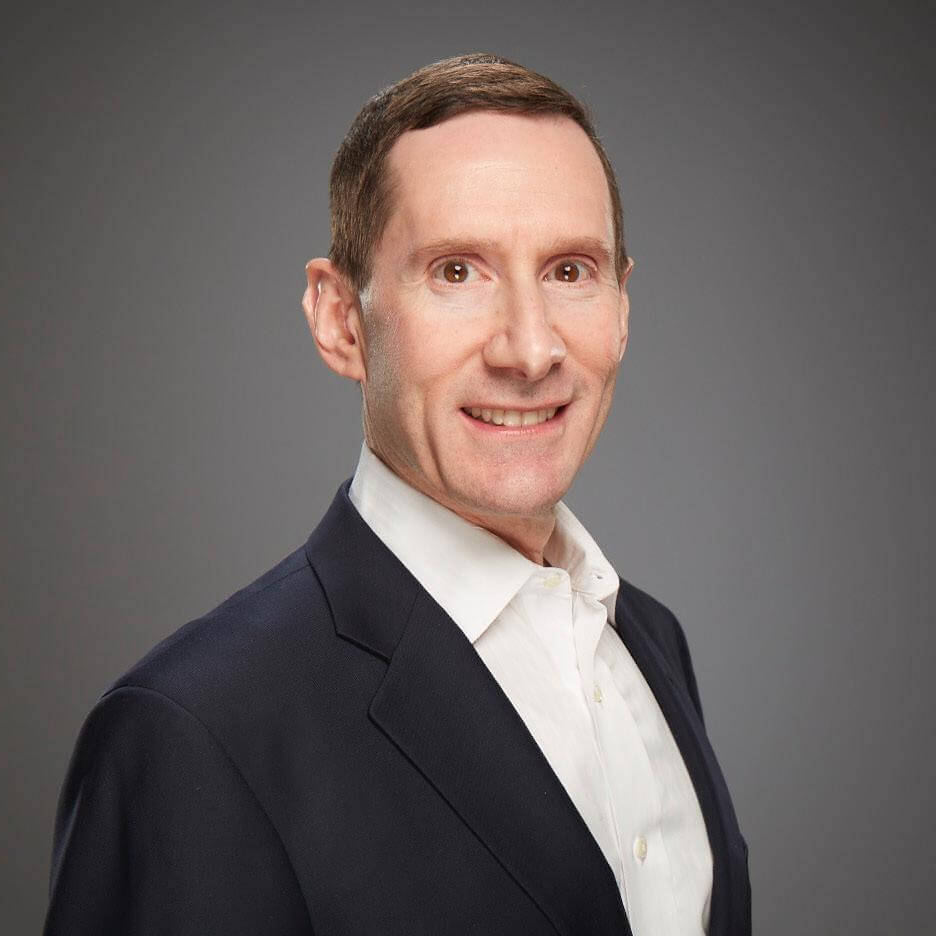
“If you look at my résumé, it might seem as though I’ve had two separate and distinct careers,” Ken Perry says. “I was trained as a theoretical computer scientist, and after I graduated I did research into distributed computing at IBM; after that I entered the financial industry, becoming a member of one of the first risk management departments on Wall Street as an associate at Morgan Stanley. Today, of course, there’s an acknowledged intersection between those two areas.”
That confluence makes a great deal of sense according to Perry, who will be teaching a course in machine learning for finance here at Tandon. “In both computer science and finance research, you approach a problem in a scientific way, stripping it down to its essence and finding a solution. It’s the same skill set. In a way, my career represents a full circle.”
Even as a doctoral student, Perry, an avid reader of the financial section of the newspaper as a child, was combining his interests. “At Cornell, where I earned my master’s and doctoral degrees, we were required to choose an outside field of study in addition to our majors. While most of the others in the computer science department chose things like logic or math, I decided on finance,” he recalls.
He believes that in the financial industry, practitioners must also, in some sense, be data scientists. “You formulate a hypothesis – an idea of what you think is happening,” he explains. “Then you examine the available data for confirmation and new intuition and iterate.” His students, he thus hopes, will learn to think like scientists. “You’re not going to graduate knowing everything you need to know to be a valuable member of a company, because this isn’t a vocational school,” he quips. “But you will graduate knowing how to think and knowing how to acquire what you need.” He expects learning to take place even on his own part. “Sometimes if you’ve internalized a topic deeply, it’s useful to think of the best way to explain it to a novice,” he says. “Unpacking it in that way can lead to an even deeper understanding.”
He welcomes a return to an academic environment. “At IBM, our duties were to carry out research and produce scholarly papers, much as you would do in an academic post,” Perry recalls. “What I really enjoyed there was the ability to simply walk down the hall and engage with someone in a different discipline on an intellectual level. I’m looking forward to doing the same with the expert professors and the students, who are budding experts, at Tandon.”
Michael Sotiropoulos
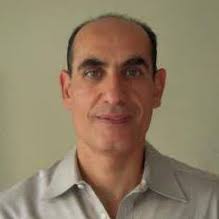
“You can learn technique by watching a YouTube video,” Michael Sotiropoulos says, “and besides, techniques change over time.” It is much more important, he asserts, for students in Tandon’s Department of Finance and Risk Engineering to learn critical thinking skills.
Sotiropoulos, who will be teaching a course in machine learning for finance, explains that for students aiming to work in the financial industry, there is sometimes a danger of losing sight of the forest for the trees. “We are working in a field with a lot of ‘trees,’” he says, metaphorically referring to the tricks and techniques popular at any given moment in the world of finance. “It’s vital, however, to look beyond that and try to gain an understanding of the entire picture.”
Sotiropoulos has been in the industry for more than two decades and thus brings a measure of historical perspective to his work as well. He holds a doctoral degree in theoretical high-energy physics from Stony Brook University, earned as part of the Fulbright Scholar Program. Rather than remaining in academia, as had been his original plan, he moved into the industry during the late 1990s, as it shifted its focus from the qualitative to the highly mathematical. “I’m not really unique,” he says. “You’ll find that many people in the financial industry have backgrounds similar to my own; if you have a knowledge of mathematical and computational methods, it will serve you well no matter what the field – whether that’s quantum physics, aerospace, or finance.”
Now a managing director at Deutsche Bank, he has also worked at such big-name firms as Bear Stearns, Bank of America, and Bloomberg, where his duties have included quantitative research in derivatives, portfolio risk, and algorithmic trading. “Research is research, whether you’re conducting it as part of academia or private industry,” says Sotiropoulos, who has also been a visiting professor at Princeton University. “Your work may be more proprietary in industry, but the basic exercise is the same, and I want my students to be prepared no matter where they end up.”
George Varughese
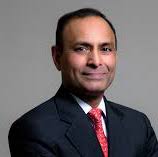
George Varughese’s CV includes several impressive names: He earned his undergraduate degree from Harvard and his MBA from Stanford, and he has been affiliated with such highly regarded companies as IBM and Credit Suisse, among others.
Perhaps the most impressive part, however, is the wide-ranging section devoted to philanthropic activity. Varughese sits on the board of Birch Family Services, an organization dedicated to helping people with autism and other developmental disabilities overcome obstacles, and he is active, as well, with the Christian Medical College (CMC) Vellore, located in Tamil Nadu, India, which was launched in 1900 by the daughter of American missionaries and which has since grown into one of the top-ranked educational, healthcare and research institutes in that country.
Now a Managing Director with global firm Alvarez & Marsal, Varughese brings more than 35 years of experience in the financial industry to Tandon, where he will be co-teaching a course in mergers, acquisitions, and restructuring. He also brings the profound and humanistic world view evident in his philanthropy.
“No matter what the topic, it’s helpful to have the larger context,” he says. “That’s why having some knowledge of history and literature is important, even when you’re studying finance.” (Varughese, a fan of biographies, was recently reading a volume about Ulysses S. Grant and discovered that the 18th president of the U.S. was, by coincidence, involved in a banking firm on Wall street after he left White House and was bilked by a swindling partner – an anecdote that lends credence to the assertion that there are financial lessons to be found in unexpected places.)
A native of India who began his career at IBM, Varughese also brings to his new post a true affinity for teaching. “I served for a time back in the 1990s as a professor of finance at the Indian Institute of Management in Bangalore, and I’ve lectured at various schools and run industry training sessions,” he explains. “I’ve always enjoyed interacting with students, mentoring them, and staying in touch with them to follow their careers, and I’m looking forward to providing Tandon students with a valuable and engaging experience in the classroom and learning from them also.”
Jeff (Jifei) Wang
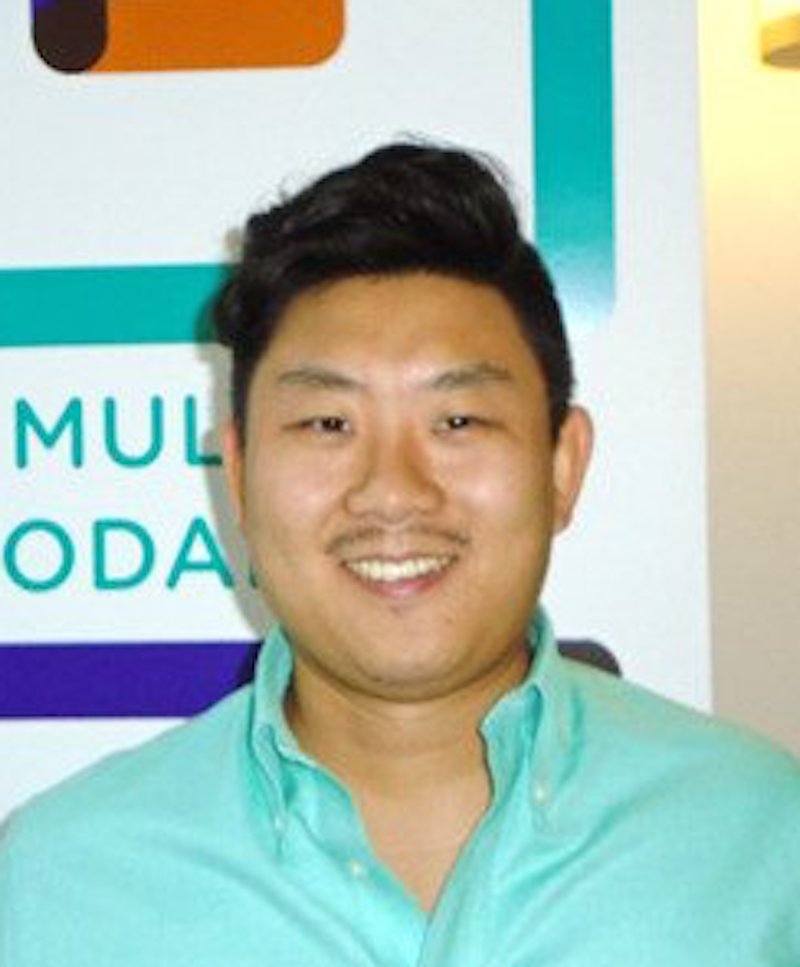
As a group, the faculty members in Tandon’s Department of Finance and Risk Engineering (FRE) have amassed decades upon decades of experience in academia and industry. A quick glance at Jeff Wang’s CV would suggest that he is not adding to that collective tally since it was only recently, in 2018, that he earned his doctoral degree from NYU Courant. (It was there that his skills and natural talent originally caught the attention of FRE Department Chair Peter Carr, who directed a Courant graduate program for several years.)
Wang, now a Quantitative Researcher at a leading asset management firm, brings with him a broad-ranging view of how innovation happens and a desire to impart his understanding to his students. “There is a very famous quote from Isaac Newton in which he attributes his accomplishments to the fact that he could stand ‘on the shoulders of giants,’” Wang says. “By that he means that he built upon the work of the scientists who came before him. In a similar way, I want my students to be fully aware of the research that has already been published and to then be able to develop their own novel machine-learning techniques and applications. I believe the ability to conduct novel research will serve them well whether they decide to pursue a career in the industry, or a Ph.D. degree.”
Thus, while Wang is too young to be bringing decades of industry experience to his post at Tandon, he is bringing several academic awards and well-received published papers, along with an impressive understanding of state-of-the-art deep-learning techniques and their applications in the world of finance.
Jane Zhao
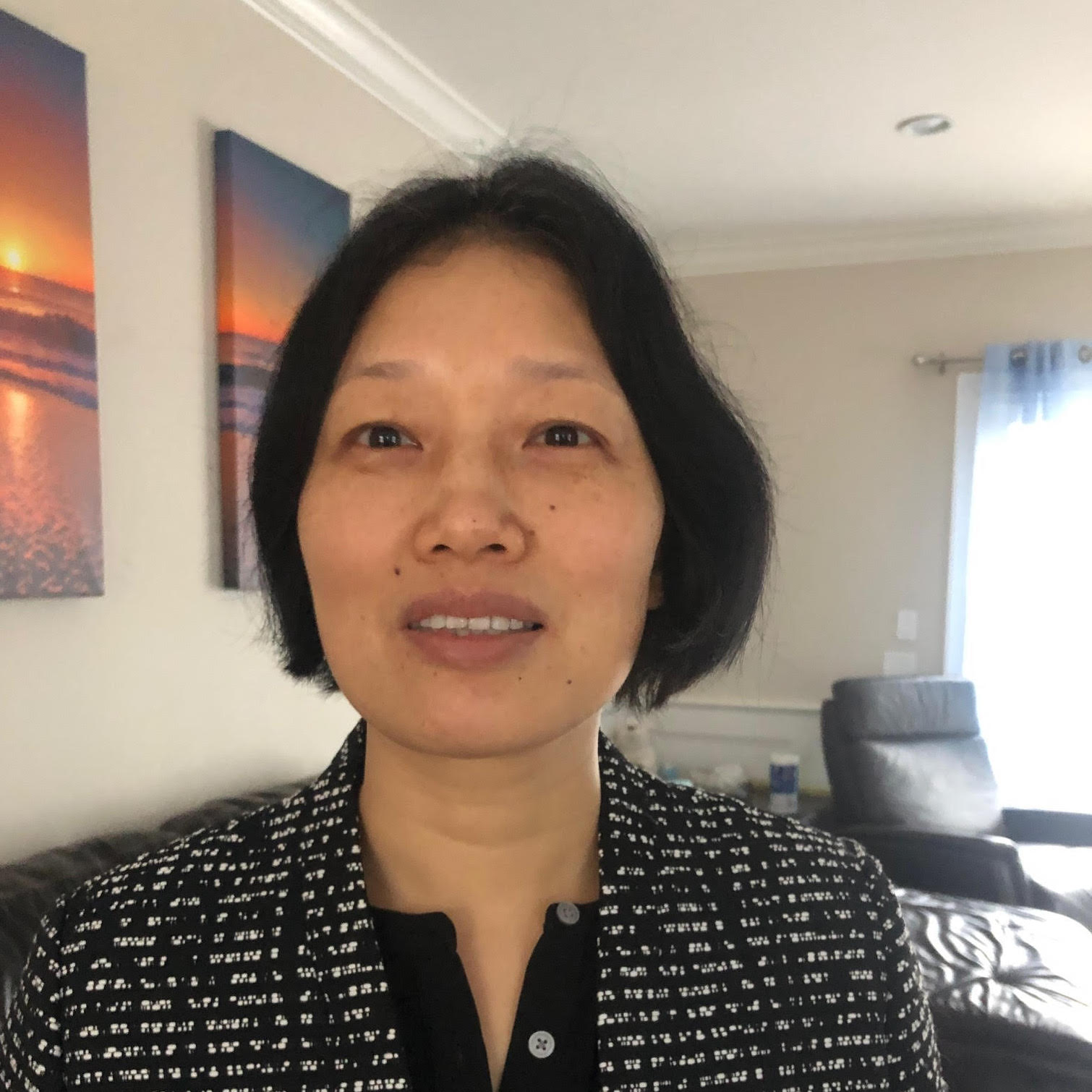
Jane Zhao has more than a decade of experience in the financial industry along with a deep knowledge of portfolio management and quantitative research. She also has a string of grants and awards from such organizations as INQUIRE Europe and the BSI Gamma Foundation.
She has not, however, had much time in the classroom since earning her own doctoral degree in finance from the University of Arizona in 2006 – a situation she is excited to remedy here at Tandon. “I’ve always been interested in academics, and one particularly gratifying part of my previous job had been to run a competition for best academic research paper that my former employer holds each year.”
She has also spent time training and mentoring interns, and she feels she could make a big impact to their career. “Some students can speak brilliantly about theory and be well equipped with testing techniques but lack intuition about what ideas matter and where they can gain these ideas,” she says. “I would like to help my Tandon students so they don’t find themselves in that situation. In academia, things can appear static, but in the real world they are dynamic and constantly changing.”
Her course will center on quantitative equity investing – from finding relevant data to discovering a strategy to managing portfolios – and she hopes that her students will be as passionate about data as she herself is. “You need to be curious, creative and willing to challenge conventional thinking,” she says.
She appreciates the chance to train the next generation of financial professionals and sees it as a way of giving back to the industry. “I will be very happy if I can nurture patient, detail-oriented graduates with the curiosity to experiment and willingness to work hard,” she says. “These are the young people I might be recruiting myself one day.”




